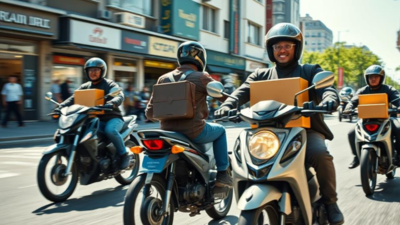
India’s quick commerce industry is sprinting ahead in metros, but non-metro cities continue to trail behind, held back by weak demand, low digital adoption, and entrenched local shopping habits, according to a report by Redseer.The sector expanded nearly 150% year-on-year in the first five months of 2025, driven by aggressive rollout of dark stores, rapid category expansion, and intense competition. Yet, non-metros account for only a little over 20% of gross merchandise value (GMV), despite platforms having a presence in more than 100 cities, PTI reported.This share is significantly lower than their 60–70% contribution to the total retail market in the top 100 cities, highlighting both a large untapped opportunity and the difficulty of building a profitable business in these locations.Daily orders per dark store see a steep fall beyond the top 10–15 cities, dipping below 1,000 — and further under 700 in the next 20. According to Redseer, most non-metros tend to plateau before reaching 1,000 orders per day, underscoring sluggish demand in these markets.Challenges range from low digital literacy and trust in online platforms to sparse population densities and localised preferences that don’t align with standard quick commerce offerings.
Consumers in smaller cities often maintain strong relationships with local kirana stores that offer informal credit and free home delivery, reducing the incentive to shift online. Meanwhile, the cost of servicing these markets remains high, as lower order volumes force larger delivery radii and higher payouts.These dynamics push up the breakeven throughput for dark stores in smaller cities by 1.5 to 2 times compared to metros, Redseer said. Education hubs like Prayagraj and Varanasi, and affluent towns such as Chandigarh, are bucking the trend with encouraging demand.“Quick commerce has unlocked incredible convenience in metros, but scaling it beyond demands more than just replication. Success in smaller cities will hinge on hyper-local strategies, deeper demand and supply understanding, and operational agility,” said Kushal Bhatnagar, Associate Partner at Redseer Strategy Consultants, the agency quoted.According to estimates by global consultancy Kearney, India’s quick commerce grocery market is likely to triple in size from 2024 to 2027, reaching Rs 1.5–1.7 lakh crore.

 7 hours ago
1
7 hours ago
1







 English (US) ·
English (US) ·